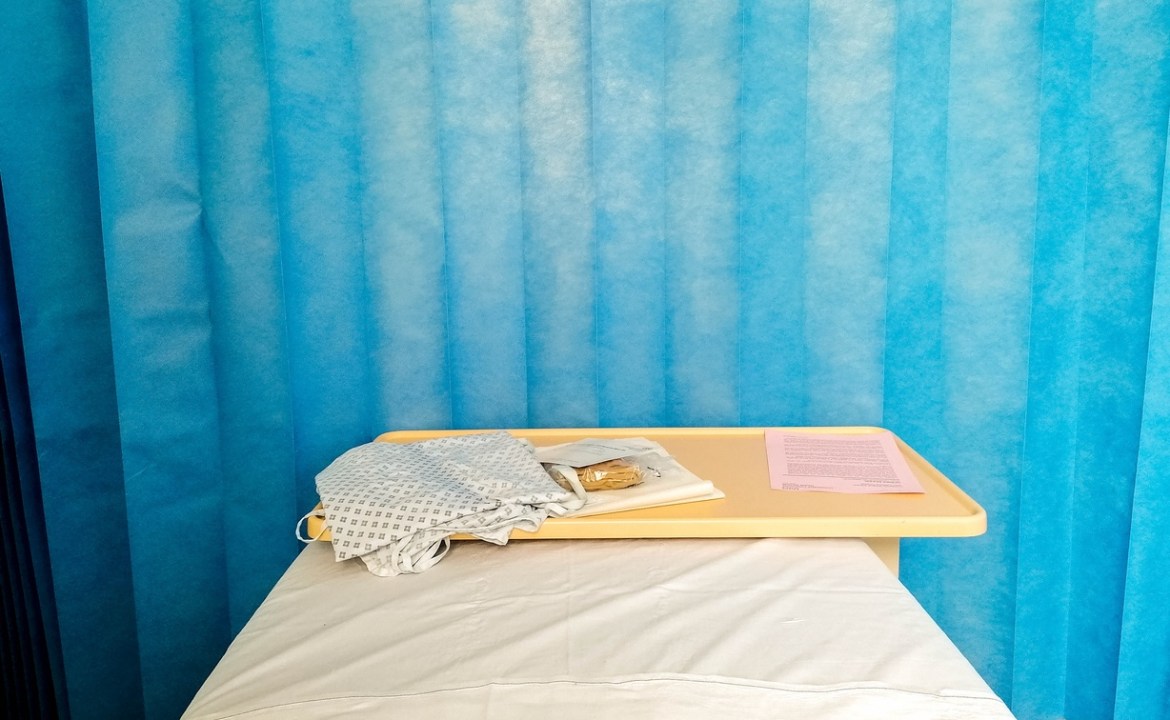The NHS has warned of a staggering 55 per cent rise in strokes among healthy middle-aged people in the last two decades. Sir Stephen Powis, medical director of the NHS, offered no explanation for what he calls an ‘alarming’ increase, beyond the standard advice to take more exercise, eat carefully, and avoid smoking and excessive alcohol consumption. The figures on which Sir Stephen bases his alert are truly startling: 12,533 people in their 50s suffered strokes in Britain last year, up from just 8,033 in 2005, while 19,421 people in their 60s were stricken – compared to just 13,650 in 2005.
I have a personal interest in these statistics. Two years ago, after enjoying a lifetime of near-perfect health, I suffered a minor stroke, or ‘hypodensity in the right basal ganglia’ of the brain, as my clinical notes described it. I was lucky; I only spent 24 hours in hospital before being discharged on a daily cocktail of blood-thinning and blood-pressure-reducing drugs. I was free from any trace of the more distressing, lasting symptoms of severe strokes: paralysis, speech impediment, facial distortion and so on. Nevertheless, the stroke altered my life, making me more aware of our fragile health and more determined to eat better, take more exercise, and drink less booze.
They decided not to take me to hospital and instead two solicitous TfL staffers accompanied me on foot to my nearby club
It also made me question the wisdom of having tamely submitted to the government’s pressure to be vaccinated during the Covid-19 pandemic. Like millions of people, I obeyed the order to have two doses of the new-fangled vaccines, in my case one manufactured by Pfizer, the other by AstraZeneca. As I stood in a sports hall queue to offer my arm to the needle, I did naively wonder what, if any, effect it would have on my health. Because I had never suffered adverse effects from childhood or holiday jabs, I was not overly worried. I even made a podcast for the Daily Mail on the absurdity of the anti-vax opposition to Edward Jenner’s smallpox vaccine when it first appeared.
Indeed, I had no side effects after receiving the vaccines, or for several months thereafter. In September 2022, however, during the week that Queen Elizabeth II died, there was a curious episode while I was travelling on the London Tube to do a TV interview. Upon entering the train my legs suddenly gave way and I collapsed in a heap. Kindly fellow passengers came to my aid and helped me to a seat, but on leaving the train the same thing happened as I climbed some steps at Bond Street station.
It suddenly felt as though my legs had gone and were unable to support my upper body. This time a young man was my saviour. For some reason, I assumed that I was having a stroke, and looked him full in the face to ask if I looked ‘normal’. Transport for London staff at the station were superb: they arrived within minutes, helped me to a chair in their office and called the ambulance service. By this time I felt better and told them so. On being assured that I was conscious and compos mentis, they decided not to take me to hospital and instead two solicitous TfL staffers accompanied me on foot to my nearby club.
And that, apparently, was that. The same day I fielded three hours of questions under the TV lights as a talking head on some historical subject – I forget now what it was – without more mishaps and returned home. I thought no more about it until a few days later when my girlfriend gave me a Covid-19 test and it showed positive. As I felt no symptoms, and we had booked a trip to Munich, we put the positive test down to a rogue result and flew to Germany.
Three months went by without further incident, but in the run-up to Christmas that year I experienced difficulties coordinating motor functions while eating, and my speech started to slur slightly. Then I woke up one morning in the New Year and, glancing in the mirror, noticed that my mouth looked crooked. I thought to myself: ‘You’re having a stroke, old son.’
I walked to my GP’s surgery to report this self-diagnosis, and from there took a cab ride to our excellent local NHS hospital. After a few minutes’ wait in A&E, I was whisked through to triage and examined. A lacunar infarct was revealed by a CT scan and after a day’s wait on a trolley, I was admitted to a ward overnight.
The next day, after passing various cognitive tests (‘Who’s the Prime Minister?’, ‘Spell “wholemeal” backwards’, ‘What is this animal called?’), I was examined by two doctors specialising in strokes. They agreed to discharge me after prescribing three daily drugs to thin blood and lower hypertension plus a statin pill. ‘You’ll be on these for the rest of your life,’ one specialist informed me cheerily.
I have described this experience in some detail as it made me more open to consider the possibility that so-called conspiracy theorists may be proposing some legitimate questions. Although people like RFK Jnr espouse eccentric and possibly dangerous ideas on nine out of ten of his health hobby horses – like fluoride in drinking water or autism in children – might he have a point on this tenth one? After all, even if Winston Churchill was wrong about Gallipoli, the gold standard, and the Abdication of Edward VIII, wasn’t he right about the big one: the danger of Nazism and the folly of appeasement when almost everyone else was sucking up to Hitler?
Such thoughts were spurred when I read a piece by no less an authority than Angus Dalgleish, professor of oncology at UCL, questioning the safety of some vaccines. Questioning, I should add. Not rejecting, just question. Dalgleish points out that 42,000 people in the US suffered serious adverse effects from the Pfizer vaccine. Of those, 1,220 have died. Perhaps his statistics are wrong. Or perhaps they’re correct, but there are other, more salient explanations. I don’t know. But I do worry that the vaccine may have had an effect on my health. I hope one day that we have an answer to such questions. Science, of course, is not a fixed and immutable dogma, but an ever changing set of theories that are, hopefully, open to challenge and change.
Experts like Dalgleish should be celebrated rather than condemned for questioning the official party line. Without joining Kennedy in the anti-vax crank corner, my own experience of a sudden stroke after those vaccines has made me doubt government decrees about following the science. There’s every chance that the likes of Dalgleish are wrong. If so, I look forward to being told exactly how. Until that point, we all have a duty to honestly question what we’re told.








Comments